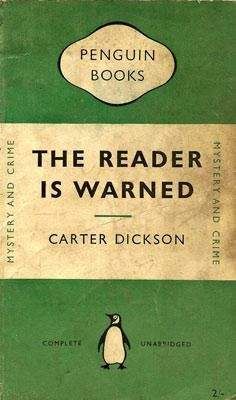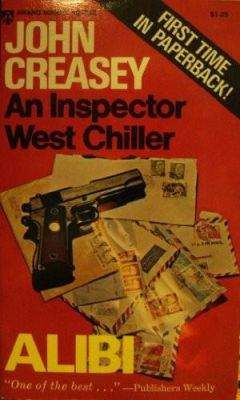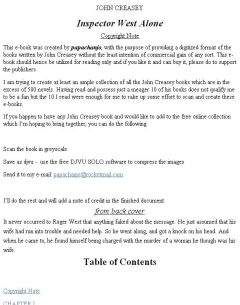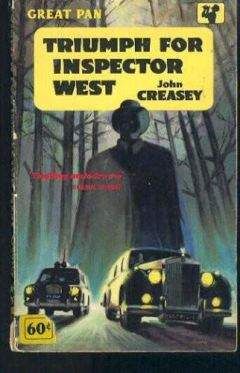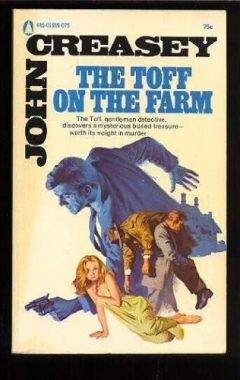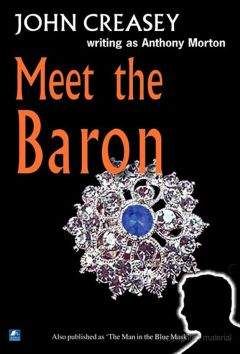John Steinbeck - Once there was a war
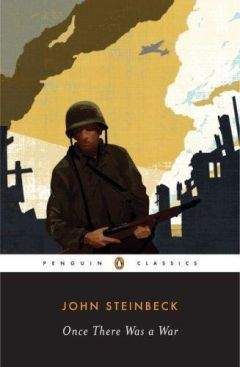
Скачивание начинается... Если скачивание не началось автоматически, пожалуйста нажмите на эту ссылку.
Жалоба
Напишите нам, и мы в срочном порядке примем меры.
Описание книги "Once there was a war"
Описание и краткое содержание "Once there was a war" читать бесплатно онлайн.
“It was dark as hell,” he said, “and we were just waiting out here,” He pointed to the sea where the mass of the invasion fleet rested. “If we thought we were going to sneak ashore we were nuts,” he said. “They were waiting for us. They knew just where we were going to land. They had machine guns in the sand dunes and .88s on the hills.
“We were out there all packed in an LCI, and then all hell broke loose. The sky was full of it and the star shells lighted it up and the tracers crisscrossed and the noise—we saw the assault go in, and then one of them hit a surf mine and went up, and in the light you could see them go flying about. I could see the boats land and the guys go wiggling and running, and then maybe there’d be a lot of white lines and some of them would waddle about and collapse and some would hit the beach.
“It didn’t seem like men getting killed, more like a picture, like a moving picture. We were pretty crowded up in there, though, and then all of a sudden it came on me that this wasn’t a moving picture. Those were guys getting the hell shot out of them, and then I got kind of scared, but what I wanted to do mostly was move around. I didn’t like being cooped up there where you couldn’t get away or get down close to the ground.
“Well, the firing would stop and then it would get pitch black even then, and it was just beginning to get light too, but the .88s sort of winked on the hills like messages, and the shells were bursting all around us. They had lots of .88s and they shot at everything. I was just getting real scared when we got the order to move in, and I swear that is the longest trip I ever took, that mile to the beach. I thought we’d never get there. I figured that if I was only on the beach I could dig down and get out of the way. There was too damned many of us there in that LCI. I wanted to spread out. That one that hit the mine was still burning when we went on by it. Then we bumped the beach and the ramps went down and I hit the water up to my waist.
“The minute I was on the beach I felt better. It didn’t seem like everybody was shooting at me and I got up to that line of brush and flopped down and some other guys flopped down beside me and then we got feeling a little foolish. We stood up and moved on. Didn’t say anything to each other, we just moved on. It was coming daylight then and the flashes of the guns weren’t so bright. I felt a little like I was drunk. The ground heaved around under my feet and I was dull. I guess that was because of the firing. My ears aren’t so good yet. I guess we moved up too far because I got sent back here.” He laughed openly. “I might have gone on right into Rome if someone hadn’t sent me back. I guess I might have walked right up that hill there.”
The cruisers began firing on the hill and the .88s fired back. From over near the hill came the heavy thudding of .59-caliber machine guns. The soldier felt pretty good. He knew what he could do now. He said, “When did you say you came ashore?”
MEDITERRANEAN THEATER, October 6, 1943—You can’t see much of a battle. Those paintings reproduced in history books which show long lines of advancing troops are either idealized or else times and battles have changed. The account in the morning papers of the battle of yesterday was not seen by the correspondent, but was put together from reports.
What the correspondent really saw was dust and the nasty burst of shells, low bushes and slit trenches. He lay on his stomach, if he had any sense, and watched ants crawling among the little sticks on the sand dune, and his nose was so close to the ants that their progress was interfered with by it.
Then he saw an advance. Not straight lines of men marching into cannon fire, but little groups scuttling like crabs from bits of cover to other cover, while the high chatter of machine guns sounded, and the deep proom of shellfire.
Perhaps the correspondent scuttled with them and hit the ground again. His report will be of battle plan and tactics, of taken ground or lost terrain, of attack and counter-attack. But these are some of the things he probably really saw:
He might have seen the splash of dirt and dust that is a shell burst, and a small Italian girl in the street with her stomach blown out, and he might have seen an American soldier standing over a twitching body, crying. He probably saw many dead mules, lying on their sides, reduced to pulp. He saw the wreckage of houses, with torn beds hanging like shreds out of the spilled hole in a plaster wall. There were red carts and the stalled vehicles of refugees who did not get away.
The stretcher-bearers come back from the lines, walking in off step, so that the burden will not be jounced too much, and the blood dripping from the canvas, brother and enemy in the stretchers, so long as they are hurt. And the walking wounded coming back with shattered arms and bandaged heads, the walking wounded struggling painfully to the rear.
He would have smelled the sharp cordite in the air and the hot reek of blood if the going has been rough. The burning odor of dust will be in his nose and the stench of men and animals killed yesterday and the day before. Then a whole building is blown up and an earthy, sour smell comes from its walls. He will smell his own sweat and the accumulated sweat of an army. When his throat is dry he will drink the warm water from his canteen, which tastes of disinfectant.
While the correspondent is writing for you of advances and retreats, his skin will be raw from the woolen clothes he has not taken off for three days, and his feet will be hot and dirty and swollen from not having taken off his shoes for days. He will itch from last night’s mosquito bites and from today’s sand-fly bites. Perhaps he will have a little sand-fly fever, so that his head pulses and a red rim comes into his vision. His head may ache from the heat and his eyes burn with the dust. The knee that was sprained when he leaped ashore will grow stiff and painful, but it is no wound and cannot be treated.
“The 5th Army advanced two kilometers,” he will write, while the lines of trucks churn the road to deep dust and truck drivers hunch over their wheels. And off to the right the burial squads are scooping slits in the sandy earth. Their charges lie huddled on the ground and before they are laid in the sand, the second of the two dog tags is detached so that you know that that man with that Army serial number is dead and out of it.
These are the things he sees while he writes of tactics and strategy and names generals and in print decorates heroes. He takes a heavily waxed box from his pocket. That is his dinner. Inside there are two little packets of hard cake which have the flavor of dog biscuits. There is a tin can of cheese and a roll of vitamin-charged candy, an envelope of lemon powder to make the canteen water taste less bad, and a tiny package of our cigarettes.
That is dinner, and it will keep him moving for several more hours and keep his stomach working and his heart pumping. And if the line has advanced beyond him while he eats, dirty, bug-like children will sidle up to him, cringing and sniffling, their noses ringed with flies, and these children will whine for one of the hard biscuits and some of the vitamin candy. They will cry for candy: “Caramela—caramela—caramela—okay, okay, shank you, good-by.” And if he gives the candy to one, the ground will spew up more dirty, bug-like children, and they will scream shrilly, “Caramela—caramela.” The correspondent will get the communiqué and will write your morning dispatch on his creaking, dust-filled portable: “General Clark’s 5th Army advanced two kilometers against heavy artillery fire yesterday.”
SOMEWHERE IN THE MEDITERRANEAN WAR THEATRE, October 8, 1943—The invasion and taking of the beachhead at Salerno had been very rough. The German was waiting for us. His .88s were on the surrounding hills and his machine guns in the sand dunes. His mines were in the surf and he sat there and waited for us. There was no other way. He had to be pushed out. And, for a time, it looked as though we might be pushed out. But gradually, what with the naval ships firing and the determined holding out of recently green troops and the coming of our reserves from the sea, the picture has changed. Now the invasion fleet lies in comparative safety off the shore and the beach is secure.
The sea has been smooth during the whole thing. Any storm would have made it more difficult, but the sea has been kind to us. It is as slick as silk and littered for many miles with little twinkling C-ration cans floating in the sea and glittering under the sun. The water is oily, too, and there are bits of wreckage floating everywhere and all the garbage of this huge fleet, the crates and cans and bottles and debris that men have the ability to scatter about.
Near shore the cruisers and battleships continue to fire, but now their guns are elevated and they fire over the mountains at targets unseen from the sea.
The command ship lies protected in the middle of the invasion fleet. She is a floating radio station. From her all the orders have gone out and to her all the news has come in. And the staffs are brutally tired. This has not been the usual thing. The command ship has been bombed at constantly. Her crew has been alerted every half-hour in the twenty-four. The bugle is blown and then the boatswain’s pipe over the loudspeaker and then the crackling horn that means battle stations. Then tired staff officers have taken off their helmets and their lifebelts and made for the deck for their assigned stations, while the anti-aircraft roared over their heads and the bombs came down and burst the water into the air.
Not many German planes have got through the air cover, but some have and nearly every one was after the command ship. They have straddled her with bombs. There have been near misses that jerked her in the water and it is a wonder her plates aren’t sprung.
And this has been going on for four days. No one has had any sleep. What has made it even worse, the Jerry planes have been talking to each other on their radios and not bothering to code their messages. They have been looking for this particular ship and aiming for her. They know that if they get this ship they may get the controlling brains of the whole operation.
There are very tired colonels and generals on board, waiting for the order to go ashore and establish headquarters. They will feel much better when they are ashore. It is not nice to be aboard the target of the whole fleet. But the command ship has not been hit. Other ships about her have been blasted, but not the command. The feeling aboard has been that the luck is getting pretty thin and that the next one must get her.
Meanwhile, the litter spreads out to sea on little currents. There will be C-ration cans come ashore for a thousand miles. The litter will coat the shores of Italy.
What has made the command ship’s life even more lively is that the Germans have a new bomb. At least, that is the rumor. This bomb is released and then controlled from the plane. It is directed by radio, and if it seems about to miss it can be turned by its master. At least that is what is said. And surely these bombs do not seem to act like other ones. They come down more slowly, and they glow as they come, with something like a phosphorescence that you can even see in the daytime.
When the red signal for an air attack goes out, the destroyers move in circles, belching smoke, and the small smoke carriers dart busily among the big ships, trailing ribbons of white, choking smoke which smells like sulphur. The little boats weave in and out, until they have covered the fleet with their artificial fog. The sound of coughing is deafening. At least it is until the anti-aircraft starts. And then, through the smoke, you hear the deep blow of the bombs. They don’t sound like anything else. And their explosions come through the water and strike the ship. You can feel them in your feet.
The endless lines of landing craft go ashore, carrying the supplies for men who are lying off in the bushes on the forward lines. Cases of food and tons of shells and cartridges. A hell of them lines the shore, waiting to be transported inland.
And the battle line has moved up. The beach is taken now and the invasion moves ahead. The white hospital ships move inshore to take on their cargoes.
PALERMO
SOMEWHERE IN THE MEDITERRANEAN THEATER, October 1, 1943—The sea off Sicily was running in long, smooth waves without whitecaps and the day was bright and the sea that Mediterranean blue that is unlike any other blue in the world. The PT boat ground its way through, making a great churned wake and taking even what little sea there was over the bow. It’s the wettest boat of all, the torpedo boat. The crew, in their rubber clothes, huddled on the deck trying to keep out of the constant spray, and on each side of the bridge the machine-gunners, at their stations, sat in their turrets behind their guns and the water glistened on their faces. The cartridge cases of the .50-caliber shells were green from contact with the sea water.
Off to the right a body was floating in the sea, rising and falling on the long waves. It was pretty swollen, and the brown lifebelt and collar made it float high in the water.
The captain was dressed in a bathing suit and he was barefooted. The First had a rubber coat on but his trousers were rolled up and his feet were bare, too. The two of them looked off across the port torpedo tube at the floating body.
“Should we go over and take a look?” the First said.
“Not in the shape it’s in,” the captain said. “Besides, we have to make our schedule.”
The first said, “I think that’s the loneliest thing in the world. A body floating at sea. I don’t know anything that looks so alone.”
The captain let go his hold on the torpedo tube and turned and held onto the rail behind the port gun turret. “Before you came on I had one that gave me the willies,” he said. He broke abruptly into his story.
“After Palermo fell,” he said, “there was a night and a part of a day before the Seventh Army got to the city. I was on patrol with five PTs and we got the flash and we were in the neighborhood anyway, so we came to take a look. You know what Palermo looks like. That great, big, strong mountain right beside the city and the crazy lights that get on it and then the city spilled down there at the base. It looks like Ulysses has just left there. You can really get the sense of Virgil from that mountain, from the whole northern coast of Sicily, for that matter. It just stinks of the classics.
“Anyway, it was fairly late in the afternoon when we came opposite the city and crept in next to the mole and sneaked through. We were fixed to run if anything shot at us, but nothing did. We went into the harbor and it was really shot to pieces. There were ships sunk all over and twisted cranes and one little Italian destroyer lying over on its side.
“The Air Force really did a job on the waterfront there. Buildings and docks and machinery and boats just blasted into junk. What a junkman’s dream that was! What made me think of it was that the water was oily from the blasted ships and there was a dead woman floating on the oily water, face down and with her hair fanned out and floating behind her. She bobbed up and down when our wake spread out in the harbor.
Подписывайтесь на наши страницы в социальных сетях.
Будьте в курсе последних книжных новинок, комментируйте, обсуждайте. Мы ждём Вас!
Похожие книги на "Once there was a war"
Книги похожие на "Once there was a war" читать онлайн или скачать бесплатно полные версии.
Мы рекомендуем Вам зарегистрироваться либо войти на сайт под своим именем.
Отзывы о "John Steinbeck - Once there was a war"
Отзывы читателей о книге "Once there was a war", комментарии и мнения людей о произведении.






